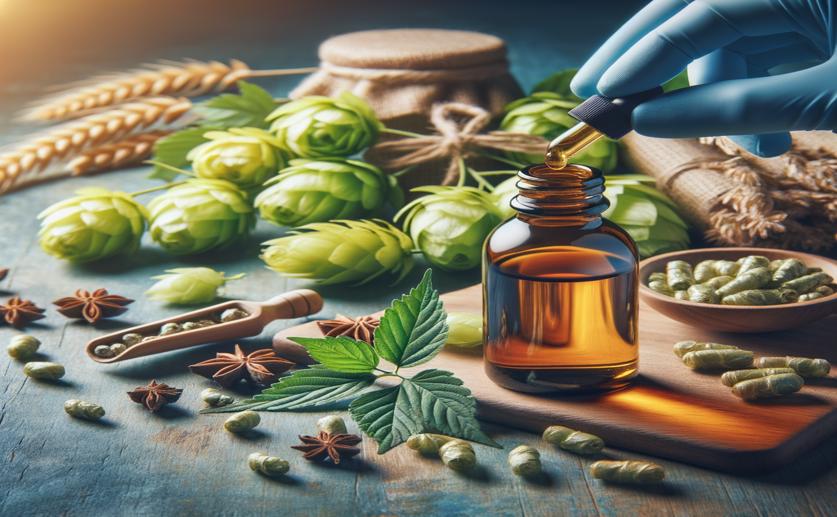
Hop Extract Eases Stress Damage and Depression Signs
Jenn Hoskins
15th April, 2024

Image Source: Natural Science News, 2024
Key Findings
- In a Xinjiang University study, hop extract improved survival and health of brain-like cells exposed to stress
- The same hop extract reduced depressive behaviors and brain inflammation in mice
- Hop extract's benefits suggest it could be a new treatment for depression, targeting both brain cell protection and inflammation
References
Main Study
1) Protective Effect of Hop Ethyl Acetate Extract on Corticosterone-Induced PC12 and Improvement of Depression-like Behavior in Mice.
Published 13th April, 2024
https://doi.org/10.1021/acschemneuro.4c00081
Related Studies
2) Systematic review and meta-analysis of the relationship between sleep disorders and suicidal behaviour in patients with depression.
3) An astroglial basis of major depressive disorder? An overview.
4) The Role of Inflammation in Depression and Fatigue.



 30th March, 2024 | Jenn Hoskins
30th March, 2024 | Jenn Hoskins